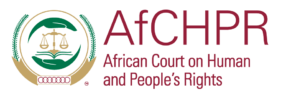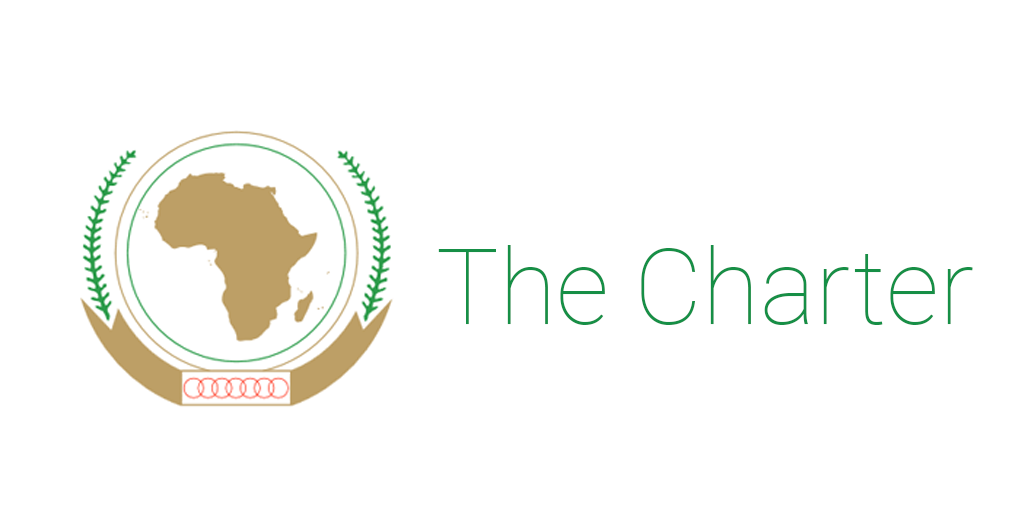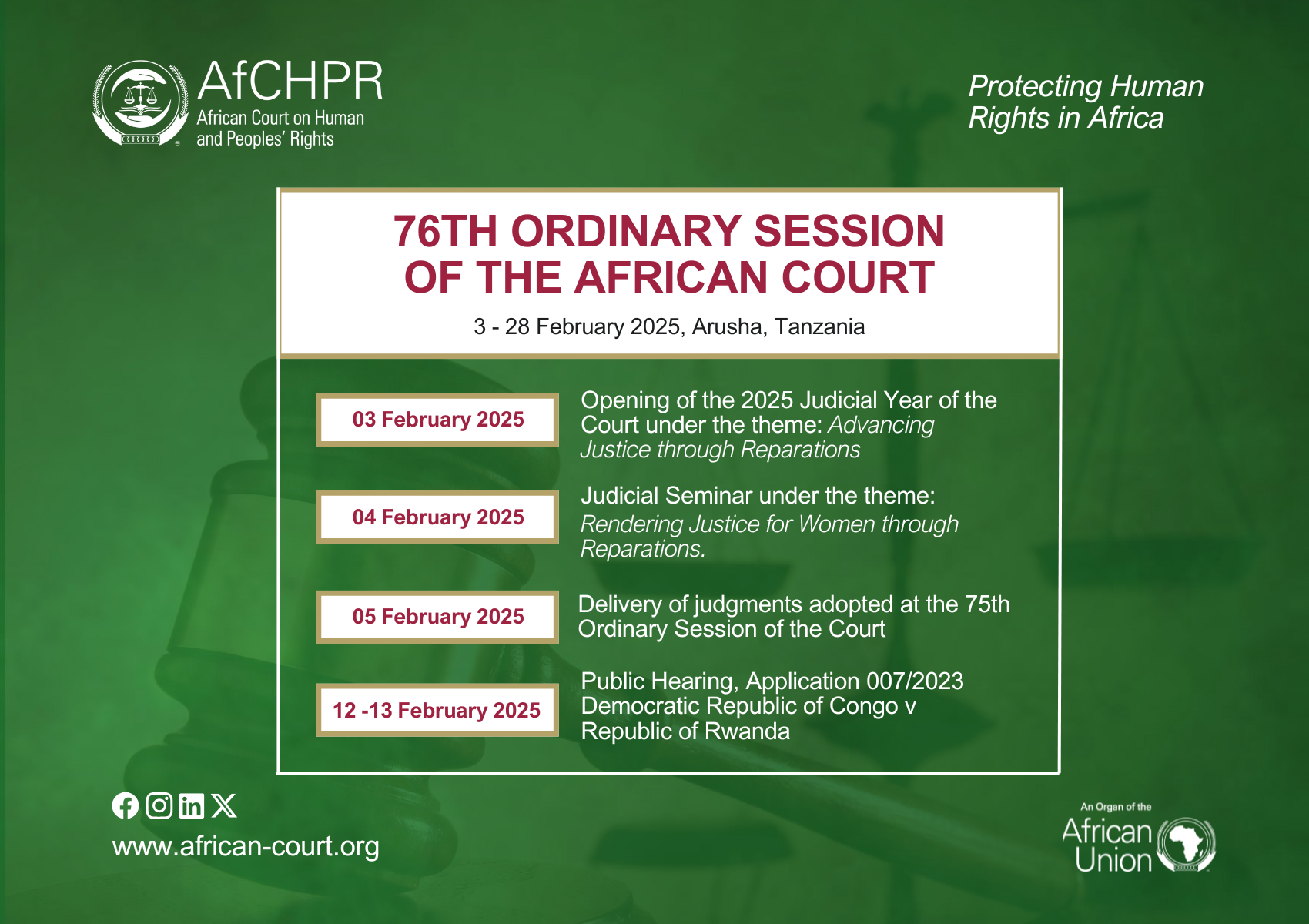Arusha, 19 July 2017: Forty lawyers registered with the African Court on Human and Peoples’ Rights (AfCHPR) to represent indigent Applicants before the Court, will undergo a three-day intensive training next month in Arusha.
According to the President of the AfCHPR, Hon. Justice Sylvain Oré, the 3-5 August training is aimed at familiarizing the lawyers with the Court’s judicial and operational aspects and also update them on the legal aid scheme.
‘’This is the first time such training is conducted’’, he said, adding that at the end of the training, the lawyers would have been equipped with requisite skills in order to represent indigent applicants effectively.
Currently 61 counsels from 25 countries have registered with the Court to represent indigent Applicants.
The countries are: Algeria, Benin, Burundi, Cameroon, Congo (DRC), Dutch / French, Egypt, Gabon, Gambia, Italy, Kenya, Liberia, Mali, Mauritania, Nigeria, Rwanda, Senegal, South Africa, Tanzania, Togo, Uganda, United Kingdom, United States, Zambia and Zimbabwe.
NOTES FOR EDITORS:
1. The African Court on Human and Peoples’ Rights was established by virtue of Article 1 of the Protocol to the African Charter on Human and Peoples’ Rights on the Establishment of an African Court on Human and Peoples’ Rights, to complement the protective mandate of the African Commission on Human and Peoples’ Rights, with a view to enhancing the protection of human rights on the continent.
2. By mid-July 2017, the Court had received 147 Applications, disposed of 31 while 112 pending and transferred 4 to the Banjul Commission. Of the 147 Applications received, 134 were from individuals, 10 from NGOs and 3 from the Banjul Commission.
3. The Court received 12 requests for advisory opinions of which 5 are pending while 7 have been finalized. 3 requests for review all of which have been finalized and 3 requests for interpretation of judgment 1 of which has been finalized while 2 are pending.
4. To date the Court has issued 8 judgments on merits, in which it has found States Parties in violation of various articles of the African Charter on Human and Peoples’ Rights (the African Charter). It has also issued judgments/ rulings on reparations and issued orders for provisional measures in at least 20 cases.














